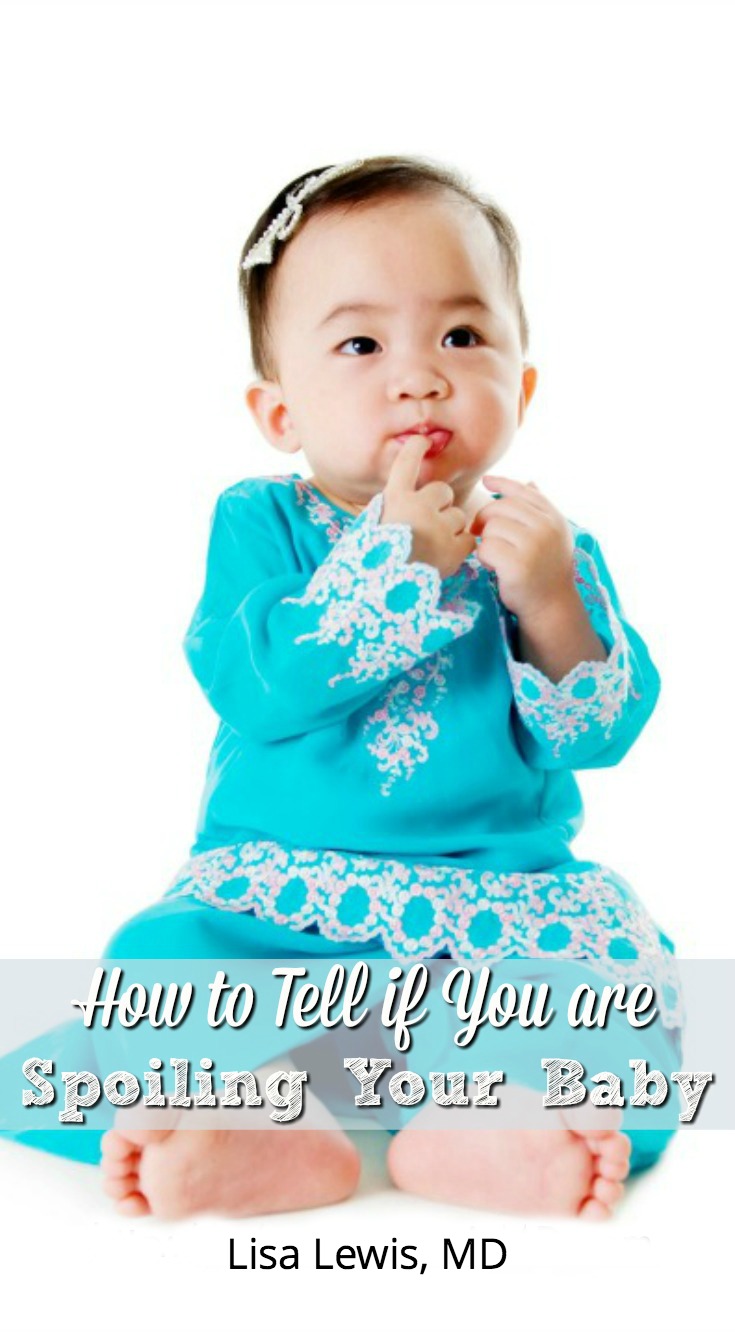Are you spoiling your baby with too much physical contact? Parents in Tibet believe babies should have ongoing physical contact with parents, extended family, and members of the community to have good brain development. Tibetan babies are quickly attended to when crying, and are described as quite content. This extended nurturing style is practiced in many cultures worldwide with no fear of baby-spoiling.

The truth is babies just can't be spoiled in the early months of life. Babies are enchanted by holding and cuddling. Extra hands-on attention lets them know they are safe in the world. They’re building trust during this critical period of brain development. According to the Canadian Journal Paediatrics & Child Health, “Developmental delay is often seen in children receiving inadequate or inappropriate sensory stimulation.” Holding and cuddling will foster a more relaxed baby who is likely to feel confident in their environment. This leads to enhanced learning, trust, and life enjoyment.
Here are some ideas to start a Nurture Plan for your baby.
Hold your baby as much as possible. Don't be afraid to ask if someone wants to hold your baby, either. Have family and friends carry the baby as well. Busy with chores? Consider baby-wearing. It's a great way to keep your baby content and feel that sweet, warm body against yours. When hiring a babysitter, make sure the person loves holding your baby or is willing to baby-wear! To quote a cliché, “it takes a village.”
Soothe babies as much as possible when they cry. Of course, sometimes we can't get to the baby right away. Have your baby close by so you can talk to him until you can pick and soothe him up.
Music may be shared between a baby and parent as a relaxing and bonding experience. In the first year of life, you will note that your baby’s senses are very keen. One highly-developed sense is the sense of sound. Babies are often afraid of a loud, unfamiliar noise and at times may cry in response. On the positive front, babies like to listen to sounds that appeal to them, especially music.
Skin-to-skin contact, a term coined as “Kangaroo Care,” has been found in studies to be beneficial for the overall health and well-being of babies. A 2002 study in Pediatrics published by the American Academy of Pediatrics, concluded that Kangaroo Care had a “significant positive impact on the infant’s perceptual-cognitive and motor development and on the parenting process.” Simply stated, premature and full-term babies have been found to relax and have better development when they have had frequent skin-to-skin contact, so do it often.
Soft blankets and clothes may feel good, but she will enjoy and be soothed by the touch of your skin. When your baby is relaxed, undress her into her diaper in a warm room. Lie down and gently place her on your bare chest or belly. Put your hands on his back and arms. Cradle her while your skin touches hers. If you are breastfeeding, feel free to do it without a shirt in the privacy of your own home. Feel the positive reaction you get from your baby. Note how content she is after the loving experience of skin-to-skin contact.
Speaking to your baby in soft, sweet tones ensures that he will stop and listen. Loud, tense speech is often offensive to a baby’s ear and increases your risk of a high-strung, anxious baby. It’s okay to have noise in the house and talk in a normal tone of voice. When you are close to the baby, however, let go of any tension from your day so that he can relax. You will find that a deliberate decision to release your day’s stress is also healthy for your own mind. The time now is for you and your baby. Yes, life happens, and you can’t always be relaxed, but if you make a deliberate effort to calm yourself and your speech, your reward is likely to be a more relaxed baby.
Go all the way with this concept. If you feel so inclined, carry on the Tibetan tradition of extended family and community care. Let the (abundant) nurturing begin at home.

Sources:
Brown, Anne Maiden, Farwell, Edie, Nyerongsha, Dickey. The Tibetan Art of Parenting. Boston: Wisdom Publications, 2008. Print.
Ardiel, Evan L., Rankin, Catherine H., “The Importance of Touch in Development.” Paediatrics & Child Health, 15(3), 2010: 153-156.
Feldman, R., Eidelman A.I., Sirota, L., Weller, A., “Comparison of Skin-to-Skin (Kangaroo) and Traditional Care: Parenting Outcomes and Pre-term Infant Development.” Pediatrics, 110, 2002: 16-26.



